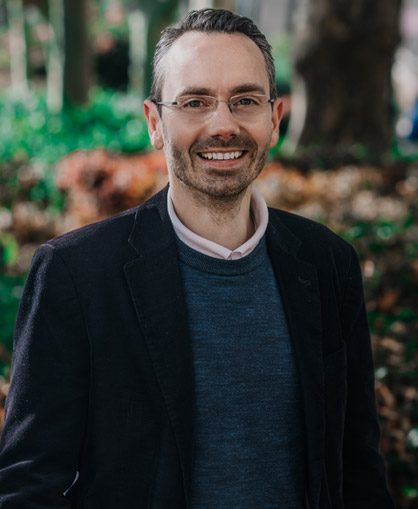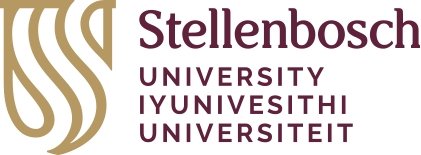
- This event has passed.
Prof Ben Loos
Augustus 25, 2022 @ 17:3018:30


Die rol van outofagie en seldoodbeheer in neurondegenerasie en gliome
Radiobiologie (die studie van die biologiese uitwerkings van ionisasiestraling) het kort ná die ontdekking van X-strale in 1895 ontstaan. Die dissipline geniet egter nie die algemene erkenning wat dit verdien nie. Radiobiologie speel belangrike rolle in ander toegepaste stralingsgebiede, soos stralingsonkologie, kerngeneeskunde, radiologie en stralingsbeskerming. Die dissipline is egter grootliks onbekend en ervaar voordurend ʼn identiteitskrisis – in die mate dat sommige radiobioloë dikwels na hulself as kankerimmunoloë of bloot bioloë verwys. Die dissipline gebruik hoofsaaklik navorsingsbevindinge om advies aan klinici en stralingsbeskermingspraktisyns te gee, en word dus as ʼn hulpentiteit beskou. Daar is geen aangewese befondsing vir radiobiologie in Suid-Afrika nie en projekte word hoofsaaklik met behulp van individuele befondsing uitgevoer. Die gebrek aan befondsing vir radiobioloë blyk ʼn wêreldwye verskynsel te wees. Die identiteitskwessie word in Suid-Afrika vererger deur die afwesigheid van ʼn stelsel vir die akkreditering van radiobioloë (wat tipies in meestersgraad- en doktorale programme opgelei word) deur die Suid-Afrikaanse Raad vir Gesondheidsberoepe (HPCSA) en die gebrek aan geakkrediteerde radiobiologie-internskapprogramme. Sonder navorsingsbefondsing en ʼn formele HPCSA-akkreditasiestelsel lyk die toekoms van radiobioloë in die land duister. In hierdie intreerede bespreek ek die belang van die dissipline en enkele uitdagings waarvoor dit te staan kom.
Kort biografie
Ben leads the Neuro Research Group. He was born in Berlin, Germany, and completed a BScHons and MSc in Physiology at Stellenbosch University and was awarded his PhD in 2009. During his MSc, he began working extensively with fluorescence microscopy and led the Microscopy Unit, Central Analytical Facility, until 2010, handing it over with a super-resolution confocal platform. Over the last 11 years he has sought to gain a better understanding of the role of autophagy activity, i.e., autophagic flux, in the onset of cell death associated with neurodegenerative diseases and gliomas. Ben’s research focus centres around Alzheimer’s disease and neuronal aging, malignant brain tumours, as well as neuronal injury and trauma. To study the dynamics of the onset of cell death he uses various microscopy techniques that allow single cell and tissue analysis with high localization precision and quantitative power. These include molecular/fluorescence imaging techniques such as structured illumination microscopy, quantitative single-molecule imaging approaches such as stochastic optical reconstruction microscopy (STORM) as well as photo-activation- and FRET. A novel control analysis and biophysics approach made it possible to assess the localization and extent of control (as opposed to regulation) of autophagy activity, as well as the quantitative assessment of complex and dynamic intracellular networks formed by tubulin and mitochondria. This approach led to the development of a new methodology to quantify autophagic flux in a more standardized fashion. Recently, correlative light and electron microscopy (CLEM), light sheet microscopy and CLARITY have been implemented, to allow for enhanced translation using pre-clinical spheroid models and rodent brain tissue. His research is anchored in strong collaborative activities with electrical/electronic engineering, which has led to four patents associated with an autophagy sensing device, as well as virtual reality guided 3-dimensional precision analysis and mitochondrial dynamics software tools. The spinout company ‘Phagoflux’ that was established in 2020 aims to develop autophagy sensing tools for the research, pharma, diagnostics and wellness market.

Nuutste Opmerkings